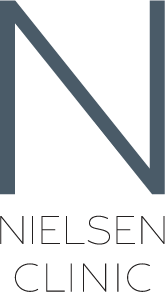
Polycystic Ovary Syndrome (PCOS)
Homeopathy & Natural Holistic Treatment for Polycystic Ovary Syndrome (PCOS)
PCOS & Natural Treatment
Do you struggle with the frustrating symptoms of Polycystic Ovary Syndrome (PCOS)? Are you looking for a more holistic and effective way to manage your condition?
Dr. Vijay Nielsen offers an integrative and holistic medicine approaches to treating PCOS. PCOS is a common hormonal disorder that affects women of reproductive age. Symptoms can include irregular periods, weight gain, acne, and excess hair growth. The exact cause of PCOS is not fully understood, but it is believed to be related to an imbalance of hormones such as insulin and androgens.
Our integrative and holistic approach to treating PCOS focuses on addressing the underlying causes of the condition and managing symptoms. We work with you to develop a personalized treatment plan that may include homeopathy, nutraceuticals, and herbal remedies.
Don't let PCOS control your life any longer. Learn more about our integrative and holistic approach to treating this condition and schedule your consultation. Take the first step towards feeling like yourself again.
Homeopathy & Nutraceutical (supplements) for Polycystic Ovary Syndrome (PCOS)
What is Polycystic Ovary Syndrome (PCOS)?
Polycystic ovary syndrome (PCOS) is a common hormonal disorder that affects women of reproductive age. PCOS is caused by a hormonal imbalance, in which the ovaries produce higher than normal levels of androgens (male hormones) and lower than normal levels of estrogen. This hormonal imbalance can lead to the development of small cysts on the ovaries, hence the name "polycystic" ovary syndrome.
It is characterized by a range of symptoms, including:
irregular menstrual periods
excess hair growth
weight gain.
From a homeopathic and integrative medical perspective, PCOS is not just a reproductive disorder, but a systemic condition that can affect multiple body systems. In addition to its effects on the reproductive system, PCOS has been linked to an increased risk of obesity, insulin resistance, and metabolic syndrome. It can also lead to mental health problems such as depression and anxiety.
Treatment for PCOS typically involves a combination of lifestyle changes, such as eating a healthy diet and exercising regularly, and medication to regulate hormone levels and address specific symptoms. In some cases, fertility treatments may be necessary for women who are trying to conceive.

What causes Polycystic Ovary Syndrome (PCOS)?
Although the cause of PCOS is unknown, a hormonal imbalance is likely to be the contributing factor. The levels of androgens (male hormones) produced by PCOS-afflicted women's ovaries are higher, while their levels of estrogenoestrogen are lower. Small cysts may form on the ovaries as a result of this hormonal imbalance, interfering with the growth and release of eggs from the ovaries.
It is not clear why this hormonal imbalance occurs in some women, but there are several factors that may contribute to the development of PCOS including:
Genetics: PCOS tends to run in families and some women may have a genetic predisposition to the condition.
Insulin Resistance: The hormone insulin aids in controlling blood sugar levels. Insulin resistance occurs in many PCOS-affectedPCOS-afflicted women, meaning that more insulin must be produced in order to maintain healthy blood sugar levels in the body's cells. This may result in an excess of androgens, which can interfere with ovulation and result in the growth of ovarian cysts.
Estrogen: Estrogen dominance may contribute to hormonal imbalance by causing the body to produce too much estrogen and not enough progesterone.
Chronic Inflammation: Chronic inflammation is an ongoing process in the body that can be triggered by infection, injury or other factors and has been linked to the development of PCOS.
Estrogen Dominance
When a person has an excessive amount of estrogen compared to progesterone, the condition is known as estrogen dominance. Numerous symptoms, including as weight gain, mood swings, and adjustments to the menstrual cycle, may result from this.
Progesterone can help control the menstrual cycle and balance the effects of estrogen. When progesterone levels are insufficient, estrogen levels might become too high, causing a variety of symptoms like irregular periods, weight gain, and mood swings.
Insulin Resistance
A condition known as insulin resistance occurs when the body's cells do not react appropriately to the hormone insulin. The pancreas produces insulin, which helps control blood sugar levels by enabling cells to utilize glucose as fuel. When a person develops insulin resistance, their cells do not react to insulin as they should, requiring the pancreas to create more insulin in order to maintain healthy blood sugar levels. Weight gain and a higher risk of contracting other diseases like metabolic syndrome and heart disease can both be brought on by insulin resistance.
Chronic Inflammation
Polycystic ovarian syndrome (PCOS) may develop as a result of chronic inflammation. The ovaries overproduce androgens (male hormones) and underproduce oestrogen, causing a hormonal imbalance that culminates in PCOS. Chronic inflammation has been related to this hormonal imbalance because it can lead to the synthesis of more androgens and less oestrogen.
Natural Treatment Options for Polycystic Ovary Syndrome (PCOS) A Modern Holistic Approach Using Homeopathy & Nutraceuticals
There are 4 steps we take to help support you with PCOS:
Step 1 - Assess lifestyle, emotional & physical
One of the key components of the treatment approach for PCOS is lifestyle changes. This can include making dietary changes and regular exercise.
Emotional stress has been shown to play a role with PCOS. Several studies have shown that stress can affect the severity of PCOS. Addressing stress levels may be beneficial for individuals with PCOS.
Step 2 - Address Clinical Symptoms
Overall, the personal demands and objectives of the PCOS patient will determine the course of treatment. I collaborate with you to create a treatment strategy that is customized to each patient's needs and objectives.
However, some typical PCOS treatment objectives for women could be as follows:
Regulating menstrual cycles and enhancing fertility: One of the main objectives of PCOS treatment is to normalize menstruation and boost fertility.
Losing weight can help hormone levels and lower the risk of developing additional health issues. Obesity is a typical consequence of PCOS.
Enhancing mental health: Women with PCOS may be more susceptible to mental health issues like depression and anxiety.
Step 3 - Optimizing Insulin Resistance
In addition to lifestyle changes, nutraceuticals or herbal supplements may be used to help improve insulin sensitivity. The specific type of treatment will depend on the individual needs and goals of the person with insulin resistance.
Step 4 - Balance Hormones & Reduce Inflammation
For those who have polycystic ovarian syndrome (PCOS), hormone balancing and inflammation reduction can be helpful.
Balancing hormones can improve regular menstrual cycles. While lowering inflammation can improve insulin sensitivity and other symptoms associated with PCOS such as weight gain, excessive hair growth and acne.
At Nielsen Clinic, our treatment approach is all about understanding your specific health concerns, so we can design a customized treatment plan to help you with providing support and guidance to help you with Polycystic Ovary Syndrome (PCOS). Dr. Vijay Nielsen’s approach is based on over 17 years of clinical experience and published medical research to help women who have Polycystic Ovary Syndrome (PCOS) achieve their health goals.
Our integrative approach to treating PCOS focuses on addressing the underlying causes of the condition and managing symptoms. We work with you to develop a personalized treatment plan. Don't let PCOS get you down. Take control of your symptoms and start feeling like yourself again.
Book an appointment.
Are you ready to reclaim your health? It all begins with taking the first step of filling out the form to request an appointment!
It’s important to me to provide guidance and support through a science-based, holistic and integrative approach using homeopathic medicine and nutraceuticals. I will help you identify the root causes of your health issues and develop a plan to address them.
While monitoring your progress and adjust your treatment plan as needed to ensure you achieve your health goals. I will provide information along the way to help you make informed decisions about your own care, while offering support and encouragement to help you stay on track with your health goals.
To your success,
Dr. Vijay Nielsen, DMS HD RAHom-A
Homeopathic Doctor | Registered Homeopath – Calgary, Alberta Canada Integrative Medicine
Sources
Balen, A. (2004). The pathophysiology of polycystic ovary syndrome: trying to understand PCOS and its endocrinology. In Best Practice & Research Clinical Obstetrics & Gynaecology (Vol. 18, Issue 5, pp. 685–706). Elsevier BV. https://doi.org/10.1016/j.bpobgyn.2004.05.004
Das, D., Das, I., Das, J., Kayal, S. K., & Khuda-Bukhsh, A. R. (2016). Efficacy of two traditionally used potentized homeopathic medicines, Calcarea carbonica and Lycopodium clavatum, used for treating PCOS patients: I. Effects on certain important external guiding symptoms. TANG [HUMANITAS MEDICINE], 6(1), 6.1-6.6. https://doi.org/10.5667/TANG.2015.0027
Kupreeva, M., Diane, A., Lehner, R., Watts, R., Ghosh, M., Proctor, S., & Vine, D. (2019). Effect of metformin and flutamide on insulin, lipogenic and androgen-estrogen signaling, and cardiometabolic risk in a PCOS-prone metabolic syndrome rodent model. In American Journal of Physiology-Endocrinology and Metabolism (Vol. 316, Issue 1, pp. E16–E33). American Physiological Society. https://doi.org/10.1152/ajpendo.00018.2018
Menichini, D., Ughetti, C., Monari, F., Di Vinci, P. L., Neri, I., & Facchinetti, F. (2022). Nutraceuticals and polycystic ovary syndrome: a systematic review of the literature. In Gynecological Endocrinology (Vol. 38, Issue 8, pp. 623–631). Informa UK Limited. https://doi.org/10.1080/09513590.2022.2089106
Parveen, S., & Das, S. (2021). Homeopathic Treatment in Patients with Polycystic Ovarian Syndrome: A Case Series. In Homeopathy. Georg Thieme Verlag KG. https://doi.org/10.1055/s-0041-1725039
Witchel, S. F., Oberfield, S. E., & Peña, A. S. (2019). Polycystic Ovary Syndrome: Pathophysiology, Presentation, and Treatment With Emphasis on Adolescent Girls. In Journal of the Endocrine Society (Vol. 3, Issue 8, pp. 1545–1573). The Endocrine Society. https://doi.org/10.1210/js.2019-00078
Xu, X.-L., Deng, S.-L., Lian, Z.-X., & Yu, K. (2021). Estrogen Receptors in Polycystic Ovary Syndrome. In Cells (Vol. 10, Issue 2, p. 459). MDPI AG. https://doi.org/10.3390/cells10020459


